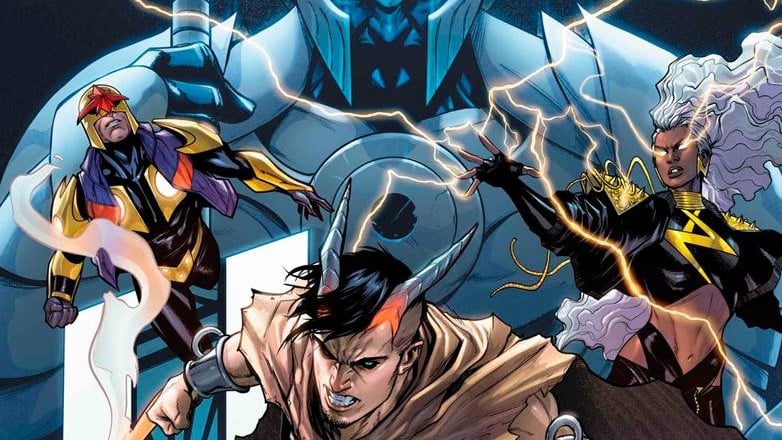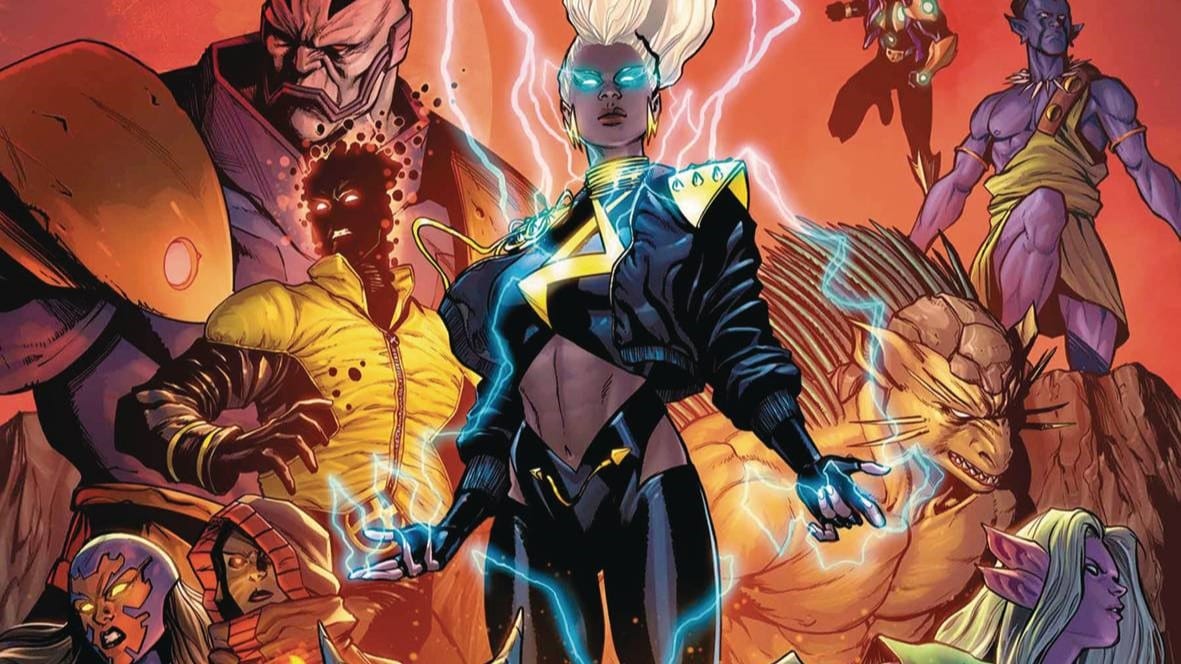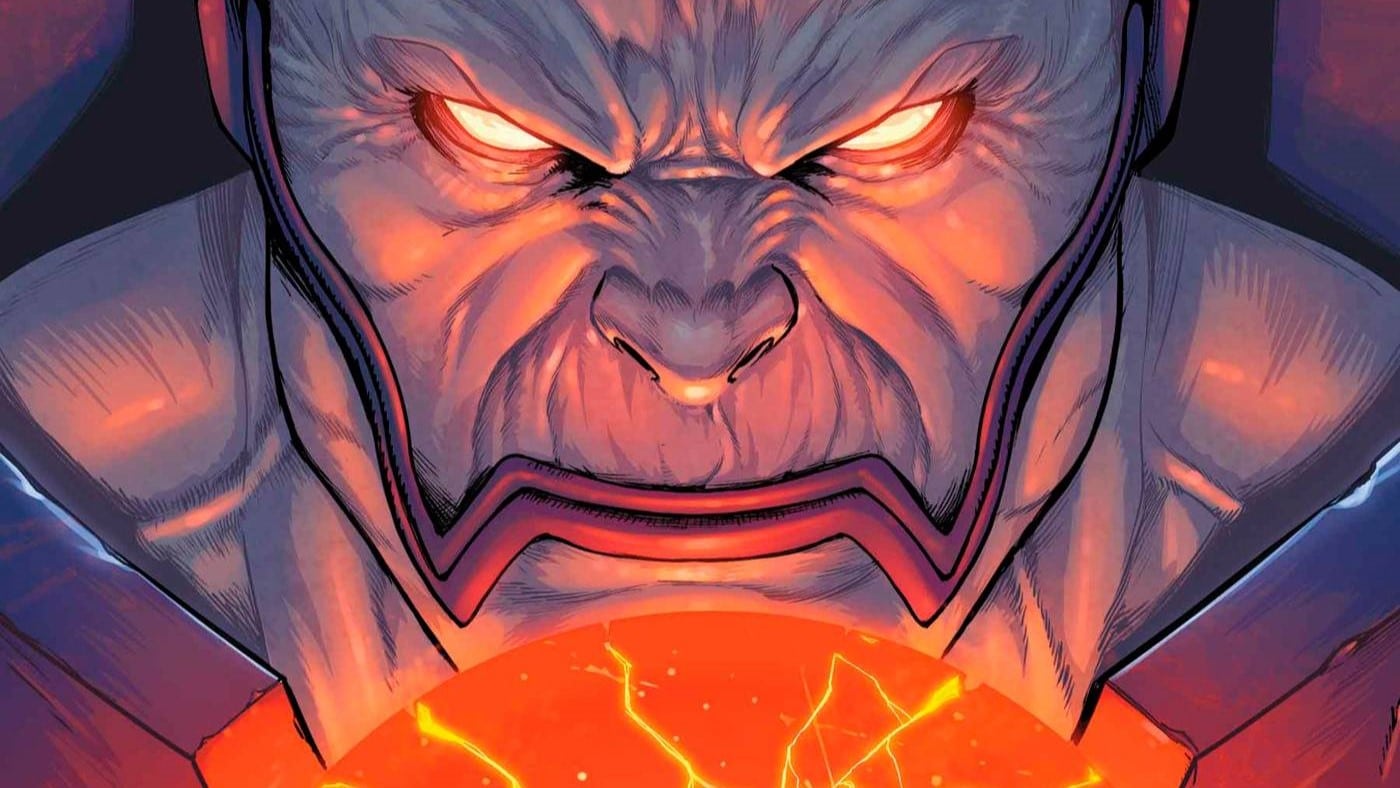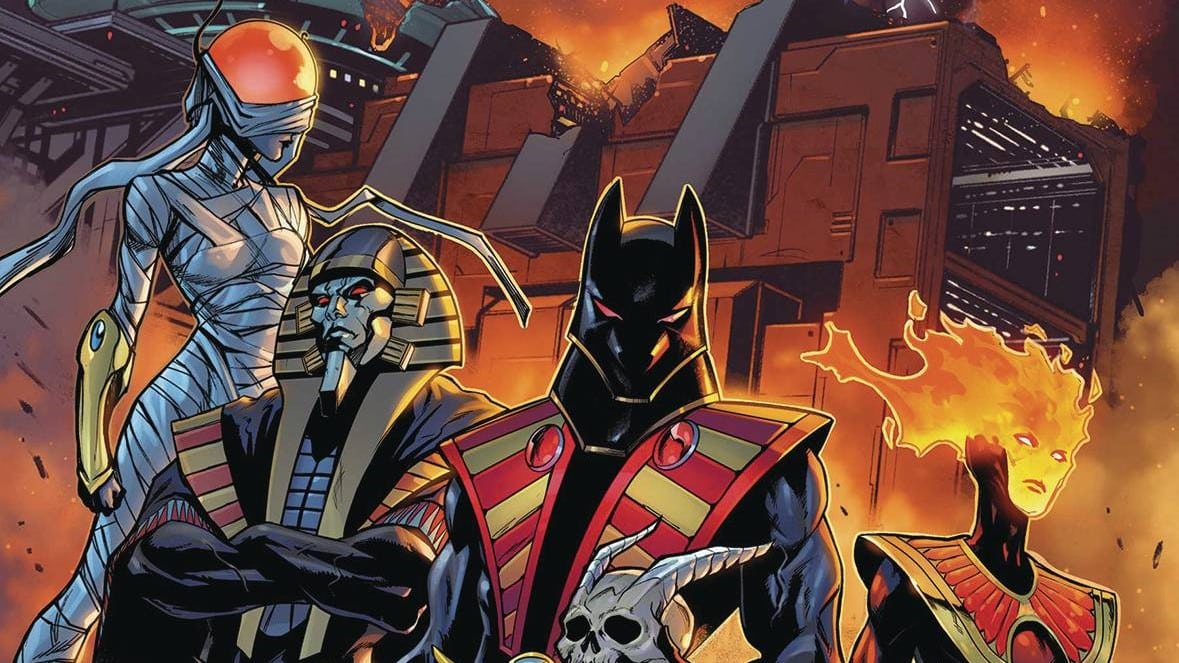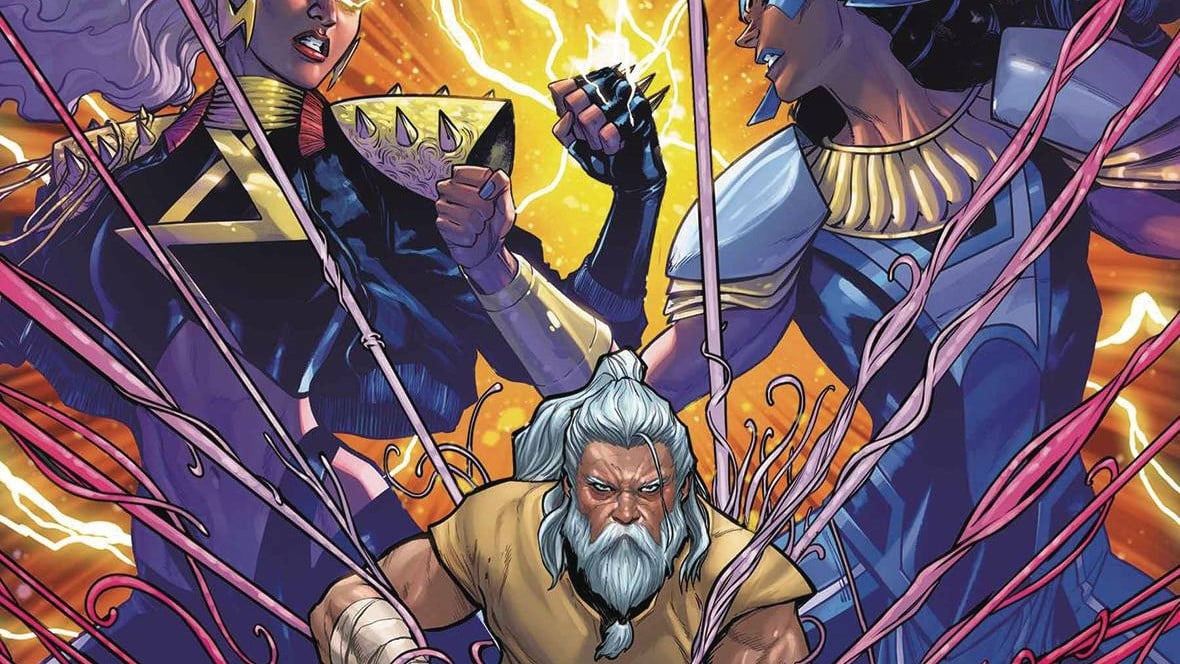Genesis is here as White Sword sends an emissary to Arakko in X-Men Red #12 written by Al Ewing, art by Jacopo Camagni, colors by Federico Blee and letters by Arianna Maher.
“It’s all connected”
Whether or not you believe The Wire was the best show in television history (spoiler: it was, is, and will be, thank you very much), its impact on storytelling is prescient and remarkable.
A cop show was, of course, not revolutionary. Many shows have done the same: procedural drama, aiming to pull at heart strings.
What made The Wire excellent, however, was it’s willingness to defy convention: heroes could be villains, villains could be heroes, and roles could switch from episode to episode.
Allies one day could be adversaries the next.
But everyone, every single person on the show, bled. Every action, no matter how minute or grand, had an effect on everyone else.
There was no good or bad, just people trying to make it, trying to beat a system they were all, in some way shape or form, indebted to.
Enslaved by.
Trapped by.
They were all connected.
That’s probably the best analogy for X-Men Red: everything connects. Good people have less than great motivations, and even the worst characters can be shown to have a heart.
In X-Men Red #12, we spend time developing characters and their lore, seeing the once mighty fall, and the fallen rise. Like starting The Wire in season 3, this issue handicaps those not already in the thralls of the story: if you weren’t around for “Sins of Sinister“, or “X of Swords“, or, (interestingly but not surprisingly when you think about it), Excalibur, you’ll be lost without a few deep dives into Wikipedia.
For better and worse, this isn’t for the casual reader.
For those already enthralled — for those who’ve committed hours reading, for those who’ve done the work — X-Men Red #12, imperfect as it is, is endlessly intriguing excellence.
As always.
The White Sword

While recounting all that happened in the “X of Swords” crossover might be a bit much, what’s pertinent is this: the White Sword, the mutant in Otherworld who’s slaughtered the Arrakko mutants and whose power resurrects the dead under his enthrall, is facing a challenge from a resurgent Genesis.
And he is scared.
One of the many things “X of Swords” did right was show how history bends to the will of the person who told it. Readers received three separate histories of Arrakko, each kind of the same, but a little different in small, super significant ways.
The details mattered when identifying why :A: (Apocalypse) stayed behind on Earth, and what tempted Genesis to wear the mask of Annihilation.
They matter here too.
Note from White Sword’s perspective, Genesis was a once ally who twice — and now thrice — has become an adversary. We were told White Sword went mad and needed to be defeated, but he seems lucid here: thoughtful, *kind* even.
Note his worry that making the helm a staff made things worse: remember the helm (supposedly, since we should reconsider everything we’re told) entrapped Genesis under its command. It was implied in X of Swords: Destruction that the staff was still necessary, but its corruption would be less direct, a “deeper lure.”
Perhaps that lure has done work to Genesis (“it whispers, or tempts, and given the license, it claims”) or perhaps the lure was always there, always hers.
Regardless, White Sword is afraid.
The first under his watch, Jon Ironfire, isn’t. We continue to get the tease out of his background, learning he was the first to die and the first to rise under the White Sword’s power.
A power he releases Ironfire from so he could save the sword.
Note how the fear of dominion dovetails with his ability (desire?) to dominate; note how he releases Ironfire, and Ironfire, once free, still has feelings of love and loyalty to White Sword, even with his memories intact. Is it Stockholm Syndrome? Is the love maybe more than platonic?
We don’t get an answer, for Genesis arrives right as he regains himself.
And she’s got company.
The armies of Amenth right at his doorstep, along with all of Genesis’ children.
But not her husband.
The, uh, kids tussle with the defenders of the spire, coming to a standstill until White Sword, the general shows his face, sans sword.
Note how Genesis seems only concerned with the sword.
Note how the General (I’ll change his name to General since he gave up the sword) anticipated this.
Which also means he anticipated falling under her spell.
He sacrificed himself, giving his sword, his “soul” to the one he loved best.
In Christianity Jesus willingly died for the world’s sins. The book of John refers to “the one he loved” six times: while his exact identity is debated, this “love” is almost certainly one of the twelve disciples.
Writer Al Ewing is many things, and intentional with his words is one of them. We are clearly meant to see the General as a martyr through the words of his disciple, who now carries the word, err, sword, of his Savior with him.
And just like those early disciples, their mission is to spread the word.
The Night Seats

Roberto and Richard Ryder (now fully clothed!) brought Ironfire to the Brotherhood, both to recount his story and, presumably, to vet his story with the two people especially good at determining a person’s character: the Fisher King and Storm.
Ideologically, everyone retreats to a corner: Fisher King to pacifist pragmatism, Ironfire to belligerence, and Storm to moderation and compassion (“we all have pain…but it demeans that pain to reduce it to a contest.”)
No decisions are made here — the interactions are brief. But it’s notable that the Night Seats see themselves as an intermediary between the Great Ring of Arakko and Ironfire; one would think the elder, surviving members of the Great Ring would have liked to have heard the news first.
Also notable is the reliability of the narrator given the motives of the narrator. Can his word be completely trusted? Is he fully free of the control of White Sword? Does he have other desires at hand?
We know from the time in “Sins of Sinister” that he’ll eventually betray Storm in some form. Do we see the seeds of that in X-Men Red #12, and to what effect will his betrayal have on the whole?
And where, again, is Apocalypse?
The Magic Hour

Genesis’ entrance: we know she can manipulate plants and life. Can she grow gates at will, or is this some other power?
Regardless, she was summoned, informed by the Akkaban priestess Marianna Stern (last seen years ago in Excalibur), that her homeland is in ruin, removed from Earth to a barren planet, decimated by death yet again, in ruin.
Because she wasn’t there.
Many have wondered how Genesis would react to the state of her world: its repeated defeats, the deaths of half her Ring mates, the departure of her sister, the ascension of the Earth mutant Storm and her kindness to the forefront.
That’s answered here: she wouldn’t be happy. Clearly egged on by Stern, Genesis openly suggests any action take on Arakko wouldn’t be limited to the red planet.
And according to the data page, that’s exactly the plan. Orchis wants a mutant civil war that will get out of hand. They’re betting on it.
While this neatly and logically fits in with Orchis’ plans, their introduction in X-Men Red #12 as the “real” big bad feels unnecessary. I get that they’re the “final boss” of the mutants, but it also feels a little…disingenuous?…to see them as the quiet, moving hand behind every single mutant problem. Arguably, Genesis, through her own will or a corrupted one, seeing the home she worked to save and angrily not recognizing it, would be compelling drama on its own terms. Orchis’ inclusion, then, takes away from her autonomy and makes all her subsequent decisions, while still interesting, subverted. She benefits from being in control of her own story; Orchis’ biggest crime here might be robbing her of that.
Still, her ominous introduction sparks intrigue. Her story is that of the land, and this to all who’ve touched the land. If you asked her, I’d believe she genuinely wants what’s best for her people, and seeing that much death and dismay, it would be hard to argue that her people are better off. She’s not a bad guy. Nor is Storm. Or White Sword. Or Ironfire.
They’re just people, joined by fate, passion, and location.
They’re all connected, and, as always, I’m deeply interested in seeing those connections continue to move in unpredictable and enjoyable ways.
X-Traneous Thoughts
- Art is not a footnote. It’s arguably the purpose of comics: how the visual connects with the written word to create a story. Here, however, the written story continuously outshines the visual: Camagni does a good job, but save for the appearance of Stern, not a great one. Fighting feels flat, faces a little plain, everything a little restrained. That said, fully committing to Genesis as a black woman, in skin tone and features, is a welcome reprieve.
- And of skin tone: at least Roberto is about Storm’s tone here, though his features are still too Eurocentric for a mixed Brazilian.
- “Genesis was not impressed” might be the best way to announce a civil war is on the horizon, ever.
- Orchis hoping for the death of Apocalypse is probably the greatest endorsement of his importance as, if not a hero, than a more than worthy opponent.
- Who’s giving them intel, anyway?
- The introduction of mysticism here — through Akkabba, though implication of Purity’s power, though the mention of Apocalypse (for whom magic was more than a hobby) and the presence of Storm (for whom magic is quickly becoming more than a hobby) — may lead to some very, uh, magical moments soon.
- Where is Redroot?
A proud New Orleanian living in the District of Columbia, Jude Jones is a professional thinker, amateur photographer, burgeoning runner and lover of Black culture, love and life. Magneto and Cyclops (and Killmonger) were right. Learn more about Jude at SaintJudeJones.com.

